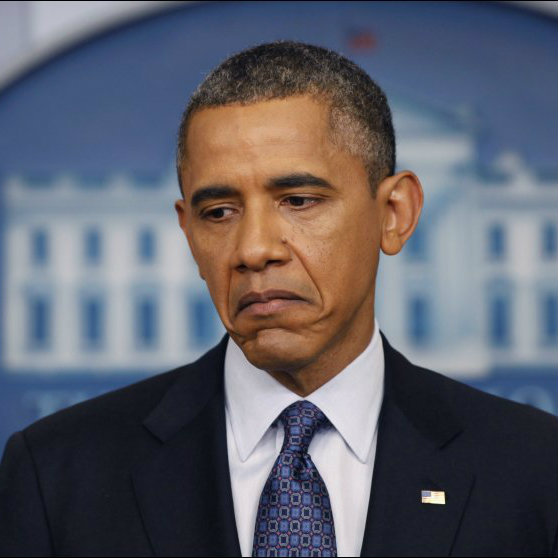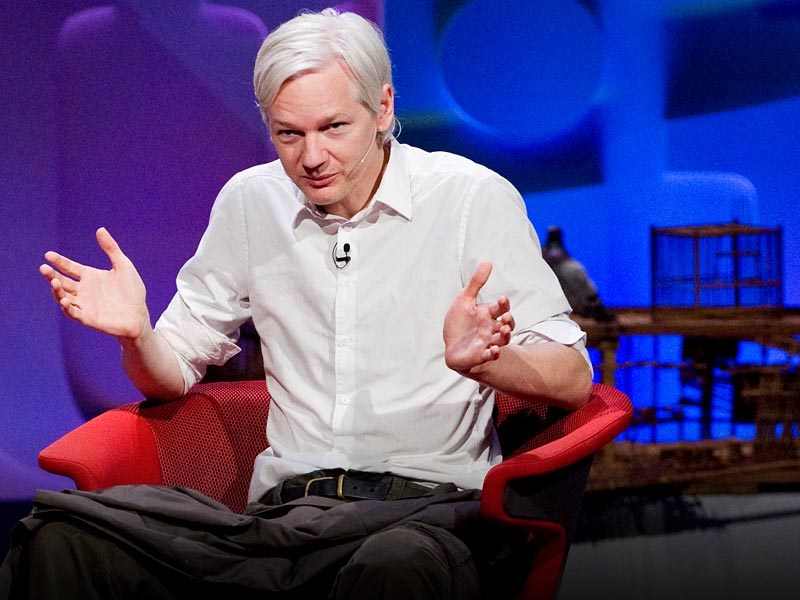Elections Have Killed Democracy
Democracy essentially means popular sovereignty; that is, the people are considered as the main entity to exercise the power of a country. On the other hand, the people, as a free group of a huge size, are unable to directly use this power, and therefore require representatives to exercise that power on their behalf. As a result, elections were devised as the authorization process in which representatives are authorized by the people. Simply put, popular sovereignty is the fundamental meaning of democracy, and elections are an important form of democracy. The content and the form, in theory, should coexist and be interdependent.
However, the 2016 U.S. general election has frustrated a lot of people. The American people have clearly expected to use their ballots to elect one administrative official of the highest rank that can represent them or at least be recognized by the majority. But reality has confused the American voters, leaving them feeling helpless and torn. According to several pre-election surveys by different polling agencies, over 60 percent of the American people were not satisfied with either of the two final candidates nominated by the two main political parties. Exit polls also showed that, even among the people who voted, only 36 percent and 33 percent respectively thought that Hillary and Trump were being honest. To a large extent, the American voters in this election cast their vote, to use an expert term, to eliminate the other candidate. One female voter’s words probably represented what many people thought. She said, “Both Trump and Hillary have scared me, and on Nov. 8, I am going to vote for the less scary one.”* To borrow a Chinese saying, this is what we call “choosing the lesser of two evils.”
Someone used to joke about Western democracy, saying that to choose one bad egg from two was called democracy, and that to have only one bad egg with no alternative was called autocracy. Now this political irony with its black humor unbelievably became reality in this election that attracted the world’s attention. This cannot fail to prompt reflection upon democracy.
The problem does not even lie in the fact that the U.S. political system can no longer guarantee that the will of the majority will determine who becomes the country’s political leader. Only a little amount of time spent on analyzing the election system and the way it works will tell us that the modern competitive election has become the killer of both democracy and the concept of popular sovereignty.
First and foremost is the problem of money-dominated politics. That competitive elections are based on money is universal in modern democracy. That money determines elections and ballot papers follow bank notes is the “original sin” of competitive elections. What is the modern election? The modern election is, in essence, a process during which value is assigned to ballot papers. People usually use their common sense and tend to think that the election is a form of free expression of voters’ will, but this common sense is just wrong. The modern election is not free expression of individual voters’ will. Numerous studies on elections show that, in any election, the voters who cast their votes based on the nature of their right to vote, as part of their social rights, are only a small fraction of all voters. People care much less about the rights and resources that seem to come with birth or be endowed by nature, such as clean air and water. Why then do the majority of voters go to polling stations to cast their votes? The value of their ballot papers is no longer their original value. Instead, the value of each ballot paper is the added value assigned to it in various ways by modern political parties and their candidates.
The specific value a voter receives by casting their vote is varied. Generally, it includes expectation of satisfaction with policies meeting the demand for a certain kind of interest, expectation of political reassurance and protection of one’s values, and expectation of reward for nurturing relationships with one’s family, friends and community. The ballot papers in the hands of voters are of an enormous number and widespread. Therefore, to assign corresponding value to each one of them, according to the voter’s value expectation, is a colossal social project of precision and accuracy, requiring the best expertise and election campaigns of impeccable efficiency. All of these of course rely on substantial amounts of funds. Fundamentally, each ballot paper’s assigned value indicates the transfer of value. In this sense, each ballot paper is tagged with a price that can be calculated.
Because elections have to rely on huge amounts of funds, the social elite naturally will monopolize elections and further monopolize power. The ordinary social groups will, therefore, become the pawns manipulated by the elite in the game of power. The further they go, the bigger the distance between them and power.
Secondly, there is the problem of politics fed on conflicts. Modern elections are usually run by political parties. Political parties originally consisted of political representatives of social groups, but over the years, as a result of political campaigns, modern political parties have gradually drifted away from their original social groups and become political elite groups, which are becoming more and more professionalized. This phenomenon in the West is called the degeneration of political parties.
When professionalized political parties run their elections, the first thing they need to do is to form stable support groups. These are called koenkai in Japan’s elections and jibenpan in Taiwan’s elections. How to form a stable support group, or jibenpan, in elections? The first thing a modern political party needs to do is to split the voters. It is normal that social contradictions are universal and that different social groups have different interests. But elections make it necessary for modern political parties to display and emphasize the difference and contradiction in interests among social groups. This will make specific social groups agree with a party’s political views and thus become committed supporters of that party. Because of such a political mechanism, what people will see for sure on any election’s “performance program” are candidates’ scare-mongering campaign speeches, during which all candidates and their parties will for sure pick the most controversial or sensitive issues as their main themes, boasting their own policies as well as attacking and demonizing their opponents. This is the most important election method in Western elections, particularly the U.S. general elections — negative campaigning, also known as smear campaigning. The 2016 U.S. general election, especially the final race between the two parties, has seen full-smear campaigning played out with unprecedented drama. This has been, no doubt, an eye-opening experience for the world audience to watch to their heart’s content.
Because in modern elections political parties need to create and maintain their support groups, social disputes and contradictions will be deliberately amplified and emphasized, which will then result in cyclical splitting of society and lead to a political culture that is prone to conflicts. When this continues, it will cause polarization of political parties — as well as that of the whole society.
Thirdly, there is the problem of populism. The modern election campaign relies on money as its foundation and on political parties as its main players, but the final outcome has to come from the general election of “one person, one vote.” This again causes another universal phenomenon in modern elections: populism, which leads to the problem that policies tend to serve only short-term purposes. Elections are a cyclical activity, and the ordinary voters’ expectation of a political party and its successful candidate is therefore confined within the term of office to be served. This kind of electoral psychology and election culture place constraints on the behavior of the parties and that of their candidates, making them tend to choose election promises and policies just for that term of office. As this cycle goes on, governments of modern Western countries generally take actions to serve short-term purposes. Therefore, the ruling party and its political leader are not genuinely able to consider the country or society’s long-term interests and make effective strategic plans accordingly. Instead, they have to follow the pace of the election race and continually come up with short-term and achievable policy objectives to meet the demands of the election.
In this U.S. general election, President-elect Trump rose like an unexpected force. With anti-system and anti-establishment slogans, he attracted and gathered around him “angry voters” who were tired of years of ugly and hypocritical money-dominated politics and elite politics. During the election, Trump attacked the pro-establishment camp and the key points of their current policies; in other words, he sharply criticized the short-term nature of government actions and policies. He pointed out in a heavy tone that, for a long time, hypocritical promises during elections and short-sighted implementation of policies after taking office were what caused the decline of the U.S. He named one by one the age-old problems in the American society, including infrastructure, basic industries, culture, education and health. Attributing all these to America’s so-called political correctness and to America’s current systems, he vowed to change everything. However, the question is whether Trump is able to bring change, because people have not forgotten the outgoing American president’s compelling campaign slogan of eight years ago: Change.
As the unforgettable 2016 U.S. general election finally drew to a close, the shock and the message it left behind were just beginning to sink in. Politicians and political scientists should take this opportunity to reflect on democracy, as its theory and practice seem to need to be brought up to date.
The author is director of the Institute of Political Science, Chinese Academy of Social Sciences.
*Editor’s Note: This quotation, accurately translated, could not be verified.


